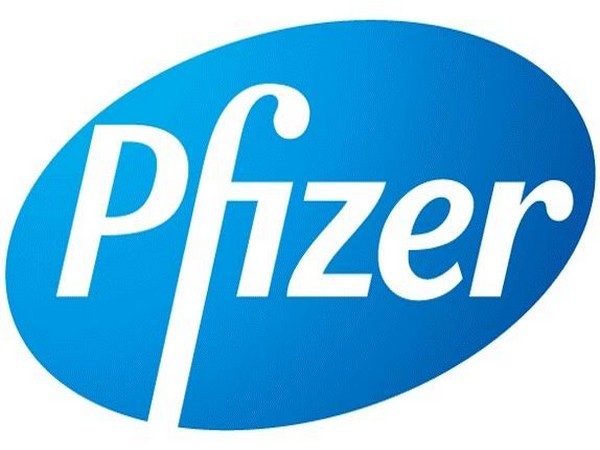Health News Roundup: Canada's Ontario to expand use of private healthcare providers; Pfizer to sell all its drugs in low-income countries at non-profit price and more
In an expansion of the company's "An Accord for a Healthier World" program, which is aimed at increasing access to innovative treatments in some of the world's poorest countries, Pfizer said it will now offer a total of 500 products. In China, doctors say they are discouraged from citing COVID on death certificates During a busy shift at the height of Beijing's COVID wave, a physician at a private hospital saw a printed notice in the emergency department: doctors should “try not to” write COVID-induced respiratory failure on death certificates.

Following is a summary of current health news briefs.
Canada's Ontario to expand use of private healthcare providers
Canada's most populous province, Ontario, plans to significantly expand its use of private providers to perform public health services, the premier said on Monday, in a bid to deal with backlogs and delays in a healthcare system strained by the coronavirus pandemic. Premier Doug Ford announced the planned expansion on Monday, saying: "The status quo is no longer acceptable. ... This is the best way to go to take the burden off the backs of the hospitals."
Pfizer to sell all its drugs in low-income countries at non-profit price
U.S. drugmaker Pfizer Inc said on Tuesday it will offer its full portfolio of drugs, including off-patent medicines such as chemotherapies and oral cancer treatments, on a not-for-profit basis to 45 low-income countries in the world. In an expansion of the company's "An Accord for a Healthier World" program, which is aimed at increasing access to innovative treatments in some of the world's poorest countries, Pfizer said it will now offer a total of 500 products.
In China, no easy way to get Pfizer's COVID drug Paxlovid
When Li's 83-year-old father with diabetes started coughing and complaining of body aches last month, the Beijing resident became anxious about finding a treatment for COVID-19 in case his parent had caught the virus sweeping the city. He heard at that time that Pfizer's anti-viral drug Paxlovid was an effective treatment, but patients could only get it prescribed if they were admitted to hospital, and only if the drug was in stock.
AbbVie, Eli Lilly exit UK drug pricing agreement
Pharmaceutical companies AbbVie and Eli Lilly have withdrawn from Britain's voluntary medicines pricing agreement, an industry body said on Monday. Companies are increasingly arguing that it is no longer possible to justify the UK's "voluntary scheme" to global boardrooms and investors as repayment rates in 2023 have surged to 26.5% of revenue, the Association of the British Pharmaceutical Industry (ABPI) said in a statement.
'Not right' for us to be key global health funder -Gates CEO
It is not right for the Bill & Melinda Gates Foundation to play such a big role in global health funding, but the group will not back away until others step up, its chief executive said. The Gates Foundation has faced criticism that it has too much power and influence in the global health realm, including within the World Health Organization, without the requisite accountability.
EU plans changes to pharma law to avoid future shortages of medicines-health commissioner
Proposed changes to an EU pharmaceutical law will include stronger obligations for the supply of medicines and earlier notifications of shortages, the EU Health Commissioner said on Tuesday. Stella Kyriakides told a session of the European Parliament that shortages of antibiotics were a growing problem for many European countries. She said the proposal to revise the pharmaceutical legislation was planned for March.
China's Lunar New Year travel to boost economy after COVID crunch
Urban workers crowded train stations across China's largest cities on Tuesday as travel for Lunar New Year holidays hit high gear, an early sign of economic recovery as officials confirmed a plunge due to COVID-19 curbs. The world's second-largest economy slowed sharply in the fourth quarter, data showed on Tuesday, dragging 2022 growth down to one its worst performances in nearly half a century after three years of COVID restrictions and lockdowns.
WHO recommends that China monitor excess COVID-19 mortality
The World Health Organization (WHO) said on Monday it recommended that China monitor excess mortality from COVID-19 to gain a fuller picture of the impact of the surge in cases there. China said on Saturday that nearly 60,000 people with COVID-19 had died in hospital since it abandoned its zero-COVID policy last month, a big jump from the figures it reported prior to facing international criticism over its COVID-19 data.
In China, doctors say they are discouraged from citing COVID on death certificates
During a busy shift at the height of Beijing's COVID wave, a physician at a private hospital saw a printed notice in the emergency department: doctors should “try not to” write COVID-induced respiratory failure on death certificates. Instead, if the deceased had an underlying disease, that should be named as the main cause of death, according to the notice, a copy of which was seen by Reuters.
Indonesia court hears class-action suit after children die from tainted cough syrup
Families of Indonesian children who died because of tainted cough syrup demanded restitution as an Indonesian court on Tuesday started hearing their class-action lawsuit against government agencies and pharmaceutical firms. About 200 children have died of acute kidney injury in Indonesia since last year and authorities have said two ingredients, ethylene glycol and diethyelene glycol, found in some syrup-based paracetamol medications are linked to the illness.
ALSO READ
Medanta Tops India's Healthcare Chart: No. 1 in World's Best Hospitals 2026
Blue Jet Healthcare Breaks Ground on Rs 2,300-Crore Pharma Facility in Andhra Pradesh
Governor Devvrat Advocates for Natural Farming's Vital Role in Public Health
Global Health News: Innovations, Challenges, and Legal Battles
Strategic Health Partnership: DRC and US Forge $1.2 Billion Deal










